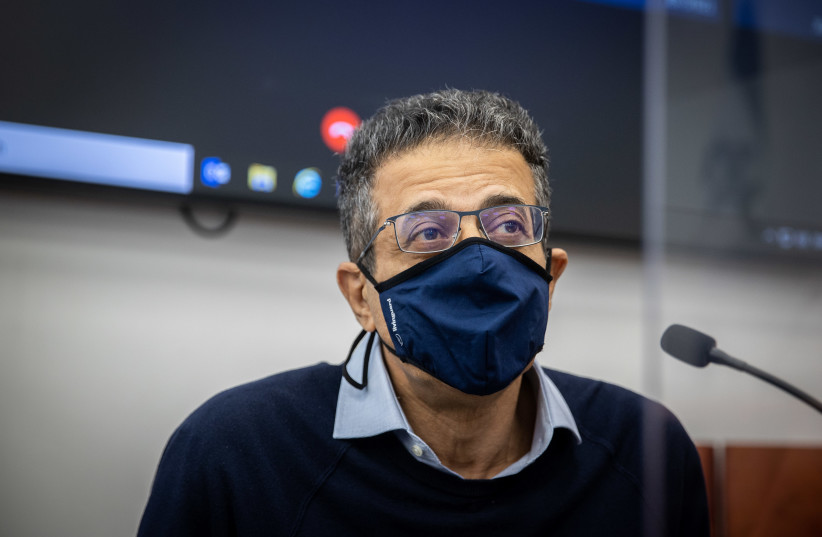Former Walla chief executive Ilan Yeshua testified before the Jerusalem District Court on the fifth day of an intervention by Nir Hefetz, Netanyahu’s assistant, in which he demanded that Walla publish an article about Minister Tzachi Hanegbi, saying that Israel will not be obliged to respect the Obama administration’s Iran agreement.
The article and the texts date from 6 July 2015, with the agreement signed on 14 July about a week later.
Yeshua’s testimony and his text messages with Shaze Elovitch, owner of Bezeq and Walla, show the great involvement of Netanyahu and his messengers in managing aspects of Walla’s website, as well as the prime minister helping Bezeq with regulatory issues.
In the text messages, Elovitch wrote to Yeshua: ‘The great [Netanyahu] surprises me every day positively about the most important issues. We need to find a way to compensate him. ”
Yeshua answers, “At the end of the day we give the requests, but we can improve.”
cnxps.cmd.push (function () {cnxps ({playerId: ’36af7c51-0caf-4741-9824-2c941fc6c17b’}). deliver (‘4c4d856e0e6f4e3d808bbc1715e132f6’);});
if (window.location.pathname.indexOf (“656089”)! = -1) {console.log (“hedva connatix”); document.getElementsByClassName (“divConnatix”)[0].style.display = “none”;}
Elovitch then wrote: ‘He is entitled to it. I do not like to have someone’s guilt. He really took care of the old way of doing things and changed completely ”when the policy was to push Bezeq to reforms.
Elovitch continues: ‘What’s frustrating is that the big one [Netanyahu] jump out of his skin to help, and we can not [fully] compensate him for a group [of Walla journalists] it’s worthless [for resisting pro-Netanyahu orders]. ”
Yeshua said that, “at the end of the day, it’s good with us, it’s costing us blood … we can do more, but we must build a very different apparatus, not [reporter] Dubik [Dov Gil Har] and not [chief editor] Avi [Alkalai]. ”
In another incident regarding an alleged request for positive coverage from Sara Netanyahu to Walla, Elovitch wrote to Yeshua that Netanyahu (still using code names) “would commit suicide for me” (for Bezeq’s interests) to emphasize how important it is was to give Sara what she had to give sought at Walla.
Subsequently, on 23-24 September 2015, there were allegedly a series of attempts by Netanyahu messengers to ensure that only the Prime Minister, and not the then Minister of Justice, was given credit for the progress of legislation against Palestinians who Molotov cocktails throw rocks.
On September 24, 2015, Elovitch sent an SMS to Yeshua saying that despite extensive discussions on the Netanyahu-Shaked issue, Walla’s report did not satisfy Netanyahu and that Elovitch received an angry call in which he was reprimanded.
Furthermore, Elovitch wrote: ‘I look like I’m not trustworthy, or a fool who pays people money to screw up [Netanyahu]. I’m not happy with [Walla chief editor] Avi’s [Alkalai] performance.”
A new development that could be the key to the prosecution was the appearance of the former top assistant to Netanyahu, who became the director general of the ministry of communications.
In general, Filber is expected to be the prosecution’s star witness to prove his case regarding Netanyahu’s handling of regulatory issues in favor of Elovitch.
However, the appearance of Filber sending a file with more than 80 examples of Walla coverage on Netanyahu that is considered insufficiently positive for Yeshua has surprised many in the media.
When asked what Filber had to do with Walla under normal circumstances, Yeshua answers ‘zero’.
Sources on the defensive side underestimated the development and said that during their presentation they would show that Filber was accidental and that he was asked to forward an email from someone else without really knowing much about it.
Elovitch’s lawyer Jacques Chen made an extensive objection to the prosecution issue and the presentation of the prosecution.
He said that a statement of 20 November 2018 by Yeshua to the police made no connection between the favorable media coverage in which he was involved, and the regulatory issues between the Ministry of Communications and Bezeq, where he was not involved.
In essence, Chen returned to a constant argument that defense attorneys argued that Yeshua and the prosecutor “corrected” and improved his testimony of the police while testifying in court.
Judges Rivkah Friedman-Feldman and Moshe Bar Am told Chen he should wait with such allegations until it is his turn to cross-examine Yeshua, as well as through his closing arguments at the end of the trial.
Prosecutor Yehudit Tirosh objected that the defense viewed her representation as misleading or contradictory.
The judges told Tirosh she should also go to the next issue and that she could respond in her own closing statement.
